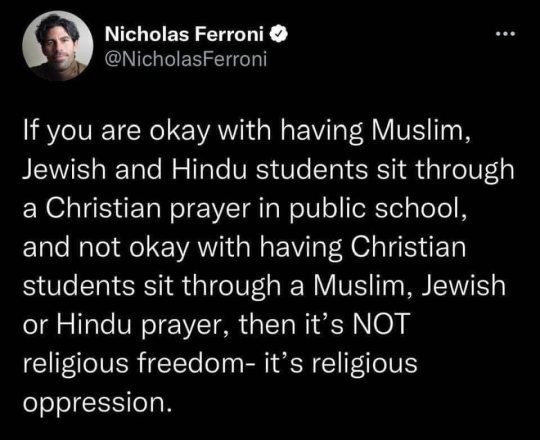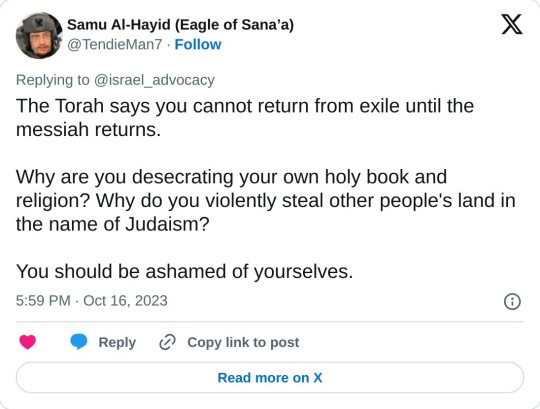#jewish religion
Explore tagged Tumblr posts
Text
In this zine we present you the jewish symbols of the famous SchUM cities - Speyer, Worms and Mainz. They were important jewish communities from the High Middle Ages, and SchUM is the acronym made up of the first letters of the hebrew names of the cities.
The symbols were taken from tombstones, synagogue ornamentations, floor tiles and even from a mikveh. We used linocut prints for creating the zine, where along with the symbols you can read about its meaning and a bit of history about their place of origin and the communities.
The importance of the SchUM cities that they were significant centers of ashkenazi judaism, showcasing early, well-preserved jewish community life, architectural innovation and scholarship. These communities considered as a cradle for ashkenazic judaism, many customs and regulations existing still today actually came from the communities that lived here.
#jewish#jumblr#art#judaism#cemetery#illustration#hebrew#zine#print#germany#schum#speyer#worms#mainz#tradition#jewish tradition#jewish religion#symbolism#symbol#motifs#ornament#middle age#medieval
376 notes
·
View notes
Text
I wonder why so many men spread across time and space all told precisely the same stories about the Jews.




#jewish religion#jewish celebrities#jew witch#jewish#jewish convert#jews on tumblr#jew#jewblr#witch community#witchblr#witchcore#witchcraft#jewish mythology#jewish history#judaism#jews#religious kink
23 notes
·
View notes
Note
I really appreciate your blog.
Your normal about gerim, right? I've seen people use us as a reason to deny Jewish indigeneity, completely ignoring that many if not most Indigenous peoples had practices of "adopting" people into their culture/religion/community before colonialism- the only difference is that instead of getting rid of the practice we just formalized it.
Ilysm <3
This is the second ask I’ve gotten about gerim, which is funny because my dad is one.
Whoever uses gerim as an excuse to delegitimize Jews in any way doesn’t know anything about Judaism. Or indigeneity. Or much about religious and cultural developments throughout history at all really.
If conversion somehow made the Jewish people and Jewish heritage and history less legitimate, Halacha wouldn’t allow it. If hundreds of years of rabbis can be “normal” about gerim, random uneducated goyim on the internet can be too.
#ask#jewish conversion#jumblr#antisemitism#jews are native to israel#jewish people#jewish heritage#jewish religion#jewish culture#israel#Israel is the Jewish homeland
62 notes
·
View notes
Text

I love the Jewish religion. I adore the festival of light that is known as Hanukkah 🕎 ✨️ I love the story of the oil that miraculously lasted for 8 days. It's a great story. Please, do not confuse this with what is going on in Israel. That is nothing to celebrate, unfortunately. I am talking about a miracle that occurred and is celebrated starting today for 8 days. It's a celebration of hope and faith and miracles!! ✨️✨️✨️✨️✨️✨️✨️ I love it when Hanukkah and Christmas are on the same day!! They both share hope, miracles, and faith, and they are filled with joy and thankfulness and sharing. I love all those things...
Happy Hanukkah 🕎 and Merry Christmas to all 🎄
#happy Hanukkah#merry christmas#miracles#Jewish religion#birth of a savior#hope#faith#phenomenal#love#happiness#thank you#sharing#joy#brotherhood#oil that lasted for 8 days#potato latkes#goodwill towards man#joy to the world#peace on earth#love thy neighbor
9 notes
·
View notes
Text
Rabbi Dovid Feldman on the misuse of Judaism by the state of Israel : " the state of Israel does not represent all Jews and certainly does not represent Jewish religion. According to Jewish religion all of this is criminal , all of this is forbidden."
youtube
#Rabbi Dovid Feldman#Israel#War crimes#Genocide#Palestine#Free Palestine#Free Gaza#Free the West Bank#Gaza#Illegal settlement#Illegal colonial invasion#Illegal colonial settlement#Illegal occupation#International law#Jewish#Judaism#Jewish religion#jewish history#jewish culture#jews#Human rights#Human rights violations#Youtube
30 notes
·
View notes
Text
God cannot be much of an Almighty, is has long since been observed, if anything we say in prayer is new to him, or useful, or capable of having an effect. If God exists, he is omniscient. If he knows everything, he knows the future, including any future prayers that we may utter. If he knows the future, it is for practical purposes fixed; and if the future is fixed, prayer is waste motion, the moving of pieces after the game is over. I figured out this neat dead end, or read it somewhere, at the age of twelve or thirteen, and maybe I stopped praying for a while; I cannot remember.
But if I did I started again pretty soon. Dead end or no, a man wants to praise God for the marvels of life, and to ask to be spared its terrors if possible, and to give thanks for what he has in hand, in healthy, family, and work. He wants to, that is, if a sense will not leave him that God is there. In Judaism praying for benefits is a very small part of the liturgy. Most of it is commitment of one's fortunes to God, and meditation on sacred writings which put in clear words the few great points of our religion. Its daily aim is a renewal of religious energy through an act which declares one's Jewish identity and one's hope in the Lord.
- This Is My God, Herman Wouk, page 91
6 notes
·
View notes
Text
American Religious Leader Louis Farrakhan Explains Why Whites Fear Black...
youtube
Listen to the people who call themselves white and how they refuse to listen to people who attack their whiteness and listen to the Black Indigenous People who speak the white people narrative about themselves.
Jewish People are a religious belief and not a racial identity because they also claim their whiteness even though the Jewish religion is hated as much as Black Indigenous People, Islam and others who don't fit their Christianity beliefs system.
But these same people follow the narratives of what so-called white people tell these people who they are as a racial identity and include the religion of Jewish people as white. This is why racism still exists because of whiteness and everyone is promoting white supremacy instead of rejecting this big lie because there's no such thing as white people on earth, it's a made up title.
#black love#black positivity#black africans#black history#science#evolution#science side of tumblr#african atheism#atheism#Jewish religion#christianity#Islamic#Youtube
3 notes
·
View notes
Text
The Jewish religion is fascinating to me as an atheist
Arguably one of the funniest religions
WHAT DO YOU MEAN YOUR BIG RELIGIOUS FIGURES ARE RULES LAWERS FOR THEIR OWN RELIGION
WHAT DO YOU MEAN YOUR HOLY BOOK IS MAINLY FARMING INSTRUCTIONS
Yall have great food too like
0 notes
Video
youtube
Pharisees And Jews: The New Testament Record - Bible Study by Chuck Bald...
0 notes
Text
I think people mean well when they insist that America isn't a Christian country but it just obfuscates the situation and makes it more difficult for minorities to frame their experiences. America is a fundamentally, structurally, ideologically Christian country from top to bottom. It's exhausting, it's suffocating, and it's the truth. Nearly all political forces, pop culture phenomena, and major life philosophies here are either built on Christianity or propped up as subverting Christianity in a way that is, of course, still entirely about Christianity. Leftwing movements here that are ostensibly hostile to Christianity still ultimately structure their worldviews around their own versions of salvation, rapture, original sin, eternal judgement, heaven, and hell. Most people here fail to see Christianity all around them, influencing every facet of American life, for the same reason that a fish can't see water.
#christianity#christian hegemony#christian culture#christian imperialism#religious minorities#religion#minority perspective#the jewish experience#jewish#jumblr#jewblr#being jewish#cultural christianity#culturally christian#minority experiences#supersessionism#jewish people#jews#religious studies
7K notes
·
View notes
Text
I’m thrilled to introduce my hand-crafted Jewish Symbols Print Set – a collection of linocut prints inspired by the rich Jewish heritage of the SchUM cities: Speyer, Worms, and Mainz.
What’s special about this set?
Each print captures motifs from tombstones, synagogues, and ancient architecture, bringing centuries of history to life. Hand-carved and printed on eco-friendly A5 recycled paper. A perfect blend of traditional craft and historical research, designed to inspire and connect.
Available now in my Etsy Shop! You can explore the collection and bring a piece of Jewish heritage to your home or gift it to someone who cherishes history and art.
#jewish#jumblr#jewish art#judaica#judaism#art#jewish culture#cemetery#yiddish#illustration#linoprint#linocarving#lino art#symbols#jewish religion#europe#germany#german jewish#handmade#etsy
48 notes
·
View notes
Text

#judaism#judaism gods#jewish convert#jewish religion#bible#jew witch#jewish#jews on tumblr#jew#jewblr#witch community#witchblr#witchcore#witchcraft#Satan#satanism#666#Faith#jewitch#jews in space#jewish witches#witches#witchy#witches on tumblr#jewish community#jews#jewish witch#jewish vibes#jews of tumblr#witch coven
24 notes
·
View notes
Text
A general tip for students who are sending those dreaded Religious Absence Emails to your professors: Rather than asking permission to take the day(s) off, politely let them know that you will be taking the day(s) off.
In other words, consider not saying this:
"May I miss class on [date] so I can observe [holiday]?"
It's not that there's anything wrong with the above, per se. But because it's phrased as a request, it risks coming across as optional — a favor you hope to be granted. Problem is, favors are not owed, and so unfortunately asking permission opens the door for the professor to respond "Thanks for asking. No, you may not. :)"
Instead, try something along the lines of:
"I will need to miss class on [date] because I will be observing [holiday]. I wanted to let you know of this conflict now, and to ask your assistance in making arrangements for making up whatever material I may miss as a result of this absence."
This is pretty formal language (naturally, you can and should tweak it to sound more like your voice). But the important piece is that, while still being respectful, it shifts the focus of the discussion so that the question becomes not "Is it okay for me to observe my religion?", but rather, "How can we best accommodate my observance?"
Because the first question should not be up for debate: freedom of religion is a right, not a favor. And the second question is the subject you need to discuss.
(Ideally, do this after you've looked up your school's policy on religious absences, so you know what you're working within and that religious discrimination is illegal. Just in case your professor forgot.)
#this strategy got me through all of college#and some professors were a lot more supportive than others but no one ever told me no#because i didn't give them the chance#jumblr#judaism#religious absences#relevant to other minority religions as well#as well as non-religious accommodations#and non-school settings#dandelion says#jewish dandelion#note: the policy/legality details will vary depending on where you live and go to school#when i talk about religious discrimination laws this is based on public universities in the us
19K notes
·
View notes
Text

23K notes
·
View notes
Text
If you see articles and tweets about how the Star of David is now a symbol of fascism and think to yourself "maybe they have a point," then whatever you define as your antizionism has absolutely crossed the line into antisemitism
The Star of David is one of the most important symbols in Judaism. The fact that it is on the flag of Israel does not make it fascist. The government of Israel is separate from the symbol. Labeling such a widely used symbol by a marginalized people as fascist is incredibly dangerous and seeks to conflate Jews as a whole with the Israeli government- something antizionists continually claim people shouldn't do. So why are some doing it?
High control groups slowly ease you into believing nonsensical things. They provide "reasoning" and "logic" which goes largely unchallenged within echo chambers. People in these echo chambers are prone to believing it because they start to see it as real logic instead of bigoted, twisted reasoning. Even otherwise intelligent people can fall for their prejudices as they begin to view it as a form of justice
It is a fantasy that high control group leaders go from 0 to 100 in five minutes or refuse to answer any questions- they are usually much more manipulative
Please confront your biases. The Jews are tired
#jumblr#jewish#jews#jew#antisemitism#antisemites#antisemitic#bias#social justice#liberal#justice#judaism#feminism#intersectional feminism#intersectionality#star of david#religion#left#leftist#high control groups#echo chamber#marginalized communities#logic#fascisim
3K notes
·
View notes
Text
"Jews are not indigenous because they actually came from..."
Are you aware that all humans were nomadic once upon a time? And that humans only started settling in one place when we as a species developed agriculture, which tied us to one land because that's where we put in the hard work, time and resources to make food? If you want to deny Jews are indigenous because we were "somewhere else first" then, by your own logic (and the history of humanity) nobody is indigenous to anywhere!
I o realize this is a real niche post but I cannot tell you how many damn times over the past 10 months I've seen gentiles tell Jews some version of, "Your own holy book SAYS God doesn't want you to have a country yet!"

And it's such an incredibly blatant and weirdly specific tell that they're not part of something that grew from progressive grassroots, but something based on right-wing astroturfing.
1. Staying in your own lane is a pretty huge progressive principle.
Telling people in another group that their deity said they couldn't do X is, I think, as far as you can get from your own lane.
2. It's also very clearly Not In Your Own Lane because I've never seen anyone actually be able to EITHER quote the passage they're thinking of, OR cite where it is.
It's purely, "I saw somebody else say this, and it seemed like it would make me win the debate I wasn't invited to."
3. It betrays a complete ignorance of Jewish culture and history.
Seriously? You don't know what you're referencing, its context, or even what it specifically says, but you're... coming to a community that reads and often discusses the entire Torah together each year, at weekly services... who have massive books holding generations of debate about it that it takes 7 years to read, at one page per day....
And saying, "YOUR book told you not to!"
I've been to services where we discussed just one word from the reading the whole time. The etymology. The connotations. The use of it in this passage versus in other passages.
And then there is the famous saying, "Ask two Jews, get three opinions." There is a culture of questioning and discussion and debate throughout Judaism.
You think maybe, in the decades and decades of public discussion about whether to buy land in Eretz Yisrael and move back there; whether it should keep being an individual thing, or keep shifting to intentional community projects; what the risks were; whether it should really be in Argentina or Canada or someplace instead; how this would be received by the Jews and gentiles already there, how to respect their boundaries, how to work with them before and during; and whether ending up with a fuckton of Jews in one place might not be exactly as dangerous for them as it had always been everywhere else....
You think NOBODY brought up anything scriptural? Nobody looked through the Torah, the Nevi'im, the Ketuvim, or the Talmud for any thoughts about any of this?? It took 200 years and some rando in the comments to blow everyone's minds???
4. It relies on an unspoken assumption that people can and should take very literal readings of religious texts and use them to control others.
And a sense of ownership and power over those texts, even without any accompanying knowledge about what they say.
It's kind of a supercessionist know-it-all vibe. It reads like, "I know what you should be doing. Because even if I'm not personally part of a fundamentalist branch of a related religion, the culture I'm rooted in is."
Bonus version I found when I was looking for an example. NOBODY should do this:

There are a lot of people who pull weird historical claims like "It SAYS Abraham came from Chaldea! That's Iraq!"
Like, first of all, a group is indigenous to a land if it arose as a people and culture there, before (not because of) colonization.
People aren't spontaneously spawning in groups, like "Boom! A new indigenous people just spawned!!"
People come from places. They go places. Sometimes, they gel as a new community and culture. Sometimes, they bop around for a while and eventually assimilate into another group.
Second: THE TORAH IS NOT A HISTORY TEXTBOOK OMFG.
It's an oral history, largely written centuries after the fact.
There is a TON of historical and archaeological research on when and where the Jewish culture originated, how it developed over time, etc. It's extremely well-established.
Nobody has to try to pull what they remember from Sunday school for this argument.
#torah#misinformation#jewish religion#jewish history#antisemitism#leftist antisemitism#israel#jumblr#torah study#jews are indigenous to israel
616 notes
·
View notes